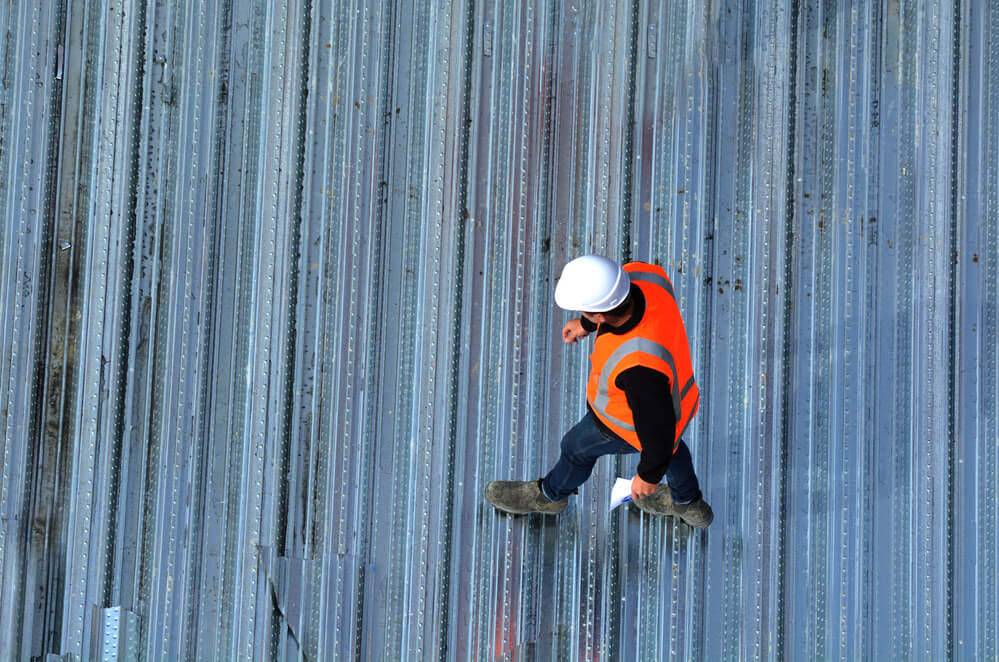Commercial roofs can be complicated structures, and even when they are well constructed, they can develop hidden problems over time. Regular inspections are critical for extending the life of a roof and preventing roofing disasters, which is why it’s important to find a roofing partner that makes inspections and reporting a key part of the maintenance routine. But, not all inspections are created equal. Quality roof inspectors will go above and beyond, checking things that may be causing hidden damage to your roof.
A good roofing inspection starts before anyone even looks at the roof. Qualified professional roofers will start with these two steps:
-
Identifying Active Warranties and Guarantees
Certain types of roof work can invalidate the warranty of some products. Before performing any work, a good roofer will check this information, as it may influence what types of repairs can be done and can save customers money, especially if parts of the roof are failing earlier than expected.
-
Examine Records and Talk to Occupants
By examining a building’s records and plans, roofers can figure out what issues they may need to pay close attention to during the inspection. Talking to people who spend their time in the building—residents or employees—might also help identify leaks or other problems.
Once the roofer has a better idea of what to expect, they’ll begin the roofing inspection. A comprehensive roofing evaluation will include:
-
An Interior Inspection
Before climbing atop the roof, roofers should walk the inside of the building, looking for water stains, signs of rust, or potential weaknesses. The source of a leak may be from inside a building.
-
Building Envelope Inspection
The building envelope is the membrane and structure that seals a facility’s interior from the outside. A roofing inspection should include an examination of the building’s structure to ensure there are no defects.
-
Flashings, Edges, and Joint Inspections
Roof inspectors will pay careful attention to the edges of roofs and where different segments come together. These are vulnerable spots in any roof and can easily crack or collect moisture.
-
Gutters, Drains, and Scuppers Inspection
It’s critical that water can escape the roof surface. Roofers must make sure that the roof is draining properly and isn’t blocked.
-
Rooftop Equipment and Penetration Inspection
If your facility has an HVAC unit or any other type of roof penetration, inspectors will need to make sure that the seams are watertight and that the penetrations haven’t damaged the roof surface.
Every building is different, and roofers may need to rely on other tools to properly examine certain types of roofs. These additional services may include:
-
Infrared Moisture Inspections
Not all leaks are easily apparent to the naked eye. Using infrared scanners, roofers can identify moisture leaks and cracks that they have missed during other parts of the inspection.
-
Drone Inspections
Some buildings have roof areas that are difficult or dangerous to reach. Many roofing companies have licensed drone pilots that can take images of the roof while safely planted on the ground.
The most important part of any roofing inspection comes after the roofing inspection is done, with a detailed report about the roof’s condition and suggestions for repairs and future maintenance. This isn’t a report that a roofer should complete quickly in their service truck. Instead, it should be a detailed and well-thought plan.
Finding the Right Roofing Partner
Because roofing inspections should be a regular part of any maintenance routine, it’s important to find a contractor who will work as a long-term partner. Find a company that schedules bi-annual inspections, and be sure they aren’t recommending unnecessary repairs. A roofing contractor’s goal should be to provide the client with a detailed report to assist with planning for the future. The inspection isn’t meant just to point out emergency defects, but rather to provide long-term solutions to issues that may be underlying or on-going for the client. By providing budgetary costs for maintenance, repairs, and replacement, we allow the client to decide when to “pull the trigger”.
Our team at Maxwell Roofing & Sheet Metal, Inc. prides ourselves on professionalism and our industry-leading reporting. If you’re ready to start a maintenance relationship with a company you can trust, contact us today, or see what some of our current customers are saying.

